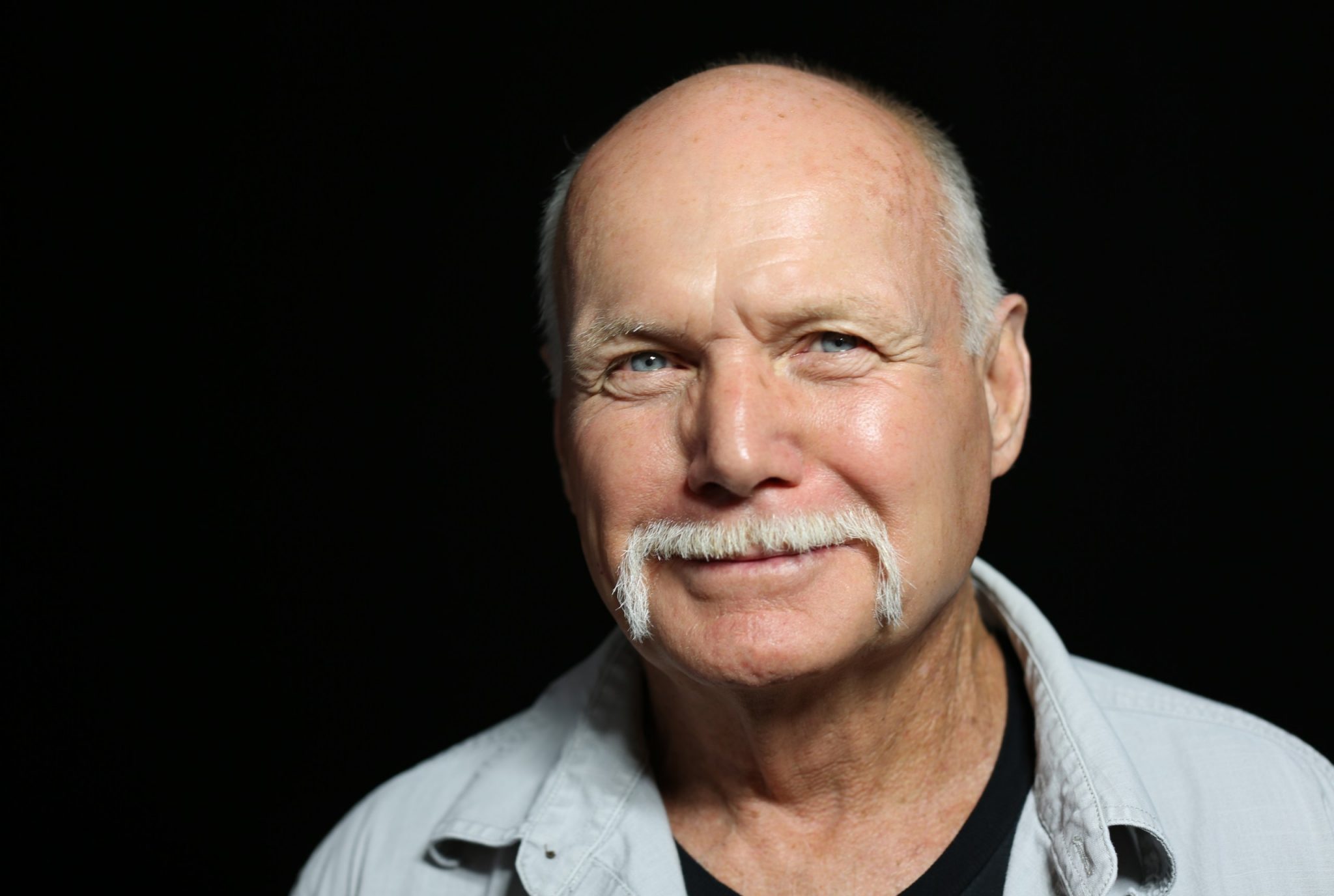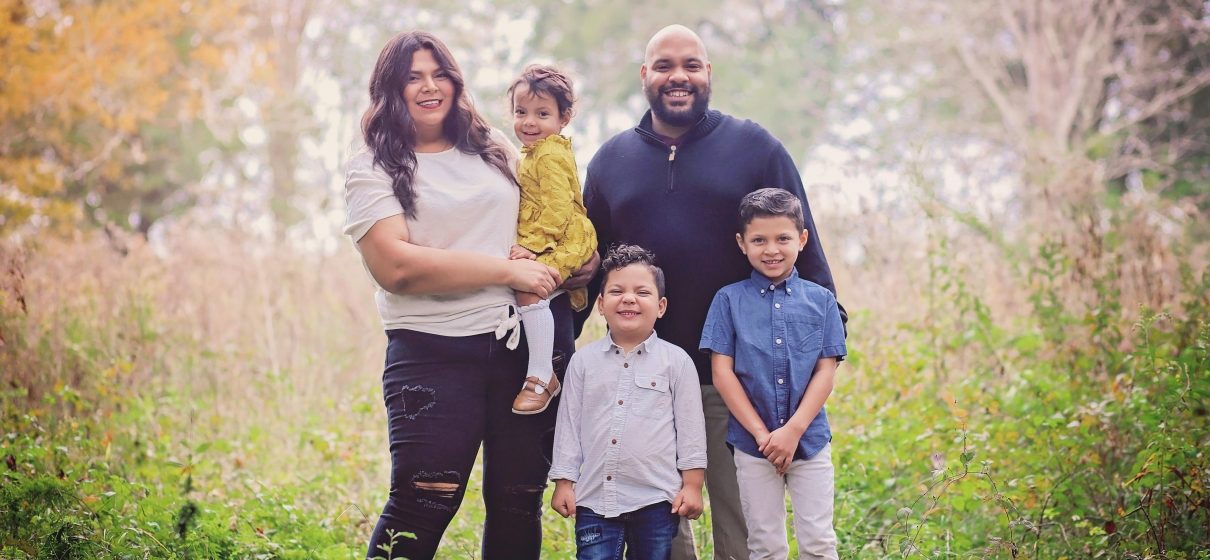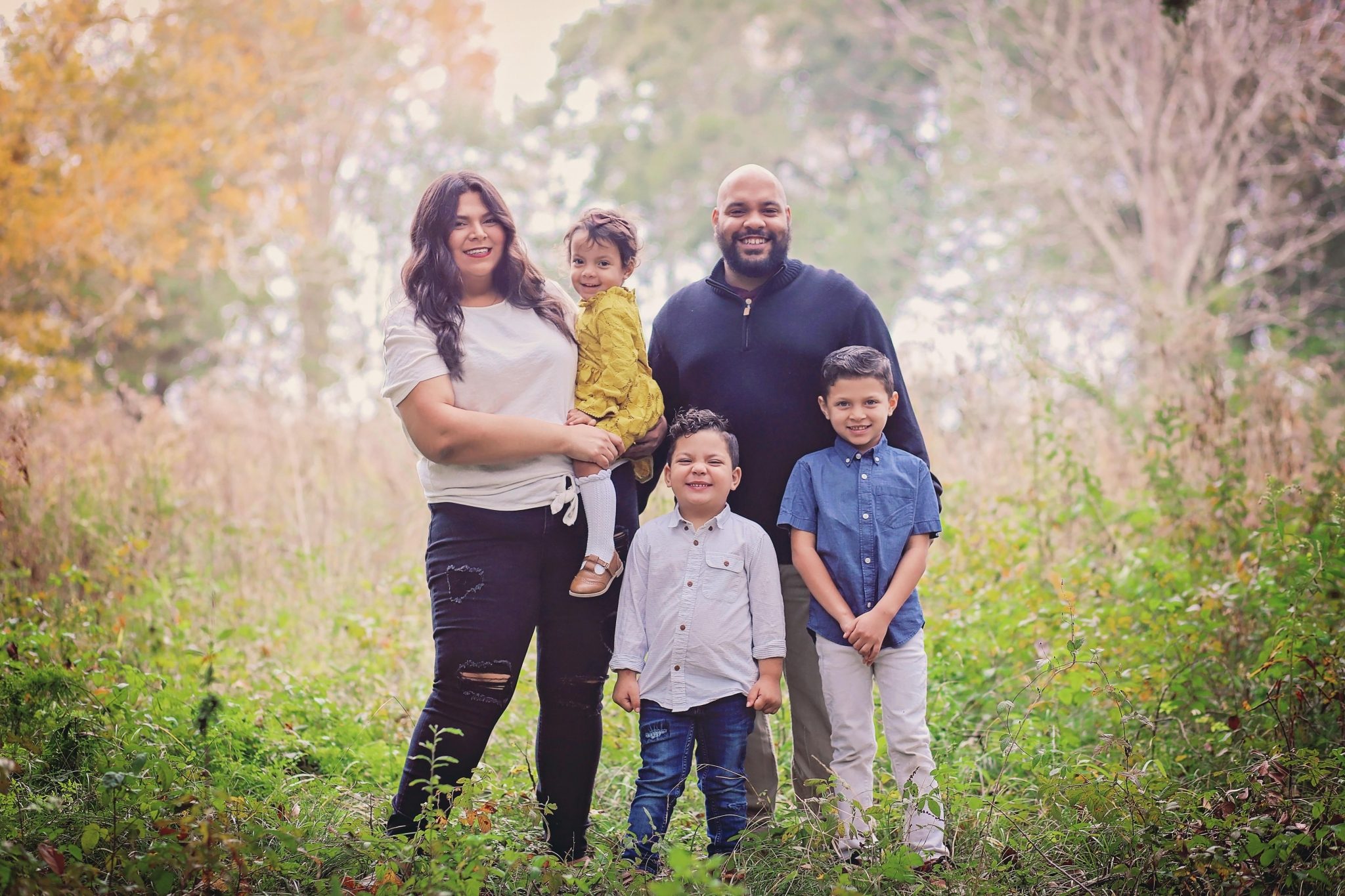The sand crunched on the path beneath the woman’s sandals as she walked. She kept her head tilted down to shield her eyes from the sun burning brightly overhead as she went. She needed water for her family, and that was where her journey was taking her.
She shifted the position of her empty water jar, and held it against her stomach with both arms, crinkling the fabric of her tunic. The road was empty. She had timed this trip well. There would likely be no one at the well where she was headed; no one to look at her with judgmental glances, or whisper to each other as she passed by.
This is the life she had earned and she knew it, but that didn’t mean she wanted the reminders from everyone else if she could avoid them.
* * *

Chanda McKinney was eight years old when her family moved from Colorado to the Houston area. John McKinney, her dad, had worked for the Coors Brewing Company in Colorado, and had taken a job in distributing with the Miller Brewing Company in Texas to take advantage of a better economy.
John had been a Christian for just a few short years and was doing his best to lead and provide for his wife, Sherry, and three daughters. Chanda’s family went to church every Sunday in the morning and the evening. They were there on Wednesday’s as well, and Chanda and her sister’s attended summer church camp every year. But at home, Chanda’s parents were constantly at odds, and frequently lashed out at each other in front of their kids.
“He was teaching the kids and heavily involved in the church,” Chanda says about her father. “The children loved my dad – we loved my dad. Yet, I heard my mom just constantly talking very poorly about my dad – a disdain that was extremely disheartening to hear her say about him.”
As an added benefit of living in Houston, Chanda’s family lived close to her mom’s family. And as a result, Chanda spent many of her childhood Saturdays shopping with her mom, aunt, and grandmother.
Sitting in the backseat of the car as they would drive, Chanda heard her mom vent about the difficulties of marriage and parenting. It colored the way Chanda saw relationships and, because she rarely heard things from his side of the story, the way she viewed her father.
As the months went on Chanda overheard more and more from her mother about how her father was dropping the ball as a family man, spending all of his time either at work or church.
On one of those Saturdays, Chanda’s aunt and mom were discussing the importance of talking to kids about inappropriate touching after hearing the idea stressed by Dr. Phil. Chanda doesn’t remember much from that conversation, except when her mom made a passing remark about the possibility of Chanda’s father committing such an act. It didn’t come to light for Chanda until many years down the road, that a grandfather whom she never knew, had been abusive towards her dad’s sisters. Chanda’s mom was merely commenting on a dark fragment of family history. But for an elementary school-aged Chanda, the damage was done. Chanda was haunted by the comment.
“In that moment, it changed my entire relationship with my father because I lived in fear that he would abuse me,” Chanda said. “I felt powerless, and fearful, and just frozen with paranoia that my dad would do something like that to me. And so from that point, I just learned from watching my parents. My mom had gained a lot of weight. She would probably be what doctors would consider to be obese… I never heard my dad say this about her, but I heard her say things like, ‘He doesn’t even touch me or talk to me because of my weight.’ What I learned was that if I could get fat then I could protect myself.”
Over the next few years, Chanda lived in a state of imbalance. She intentionally binged on sugar and sweets at every opportunity, but heard her mom complain about being overweight at the same time. Chanda tried to keep up with the pace, but couldn’t fully comprehend the issues that she saw her mom facing.
Seeing his oldest daughter becoming more distraught, but not knowing the extent of what was happening to her, Chanda’s dad chalked it all up to the hormones of a preadolescent daughter.
“My dad became passive in the hopes that my mom would do better with me,” Chanda said. “I took that as rejection… I felt abandoned by him even though we were in the same home.”
* * *
Beads of sweat formed and rolled down the woman’s temples as she walked. Her face was positioned to look at the ground beneath her feet to keep her eyes from straining in the sunlight. She knew the well wasn’t too far away and so she lifted her head just enough to see the distance she still had to travel.
She stopped.
A man was sitting on the lip of the well, watching her from only a short distance away.
She continued slowly and approached the well, trying not to make eye contact. She hadn’t seen him before, and knew he must passing through. She wondered why he would be alone, and what he might want.
“Give me a drink,” he said, startling her and interrupting her thoughts.
She starred at him for a moment, meeting his gaze for the first time. There was a strange gleam in his eyes, as if he knew her.
But how would he? It was obvious to her now that he was a Jew. And her being a Samaritan, had met only a very few number of Jewish men before. This was not one of them, and out of habit she became uncomfortable that he was speaking to her.
“How is it that you, a Jew, ask for a drink from me, a woman of Samaria?” she questioned brashly, intending to warn him off of any ill intent.
He smiled softly, leaned forward and looked down towards his hands.
“If you knew the gift of God, and who it is that is saying to you, ‘Give me a drink,’ you would have asked him, and he would have given you living water.” As he finished this phrase he looked up again and his eyes pierced her own.
They starred at each other in silence for a moment, as a soft breeze blew a few strands of hair across her face.
“Sir, you have nothing to draw water with, and the well is deep. Where do you get this living water? Are you greater than our father Jacob? He gave us this well and drank from it himself. As did his sons and his livestock.”
The man continued to look her in the eye as he spoke.
“Everyone who drinks of this water will be thirsty again, but whoever drinks of the water that I will give him will never be thirsty again. The water that I will give him will become a spring of water welling up to eternal life.”
The woman was stunned. She’d never heard anyone speak this way. Unconsciously, she leaned in and took a small step forward.
All of her life, she had searched for something to make her feel fulfilled. To feel like she was worth something. To feel hope for her future.
What this man offered was more than water, but she knew not the words to say what it was.
“Sir, give me this living water, so that I will not be thirsty or have to come here to draw water.”
* * *
Chanda was starting to crave attention.
She had started to take an interest in the boys at school and sought out their attention. There was rarely a time that she was not involved in some sort of a dating relationship after starting intermediate school.
As she started to taste the small amount of freedom that came with junior high, Chanda began to feel like her parents were trying to squelch her social life. She quickly began finding ways to be around them as little as possible. Nearly every weekend she went to a friends’ house – most of whom did not have church-going parents – and Chanda discovered more freedom to do whatever she wanted.
“We didn’t have a curfew,” Chanda says. “We would sneak out. There was alcohol and drugs. We’d sneak boys in; we’d sneak out to see guys. I mean, that was the lifestyle and I wasn’t even in high school yet.”
Chanda’s secret life was starting to spiral out of control.
As they began to realize that there was something going on with their daughter, Chanda’s parents sought out professional help and set up regular meetings with a counselor.
But as her counselor and parents begged Chanda to talk, to open up, the more she didn’t want to speak. She liked the attention. She liked the control. And so she said just enough to keep them at bay.
“They talked to me about sex – how important it is to save yourself for marriage. That was all very important. But when they were talking to me about this, what I heard was, ‘Your only value is your virginity.’ And so I figured if I gave that away, then someone would love me. And so I just kept giving it away, giving it away, giving it away. And nobody stayed. The rejection, the abandonment, the hurt, the pain, and all the soul-ties, and hurt and havoc, and now a reputation and isolation, and drugs and alcohol – I was just dying to escape what was going on inside, but I couldn’t even begin to talk about it. So that just led to more.”
Internally, she was starting to feel hollow, like a deep sense of emptiness that she couldn’t fill, no matter how hard she tried.
During her freshman year of high school, when Chanda was just 14 years old, her already overwhelming feelings of shame and guilt took a tragic turn. She spent the night at a friends’ house and was molested by her friend’s stepfather. Chanda’s friend found out about the incident and went to a counselor where she explained the incident involving Chanda, and then confessed that her stepfather had been molesting her for several years.
The friend moved away to live with her biological father.
The stepfather went to jail.
Chanda fell into a state of despair.
She continued to search for worth and meaning in her relationships with guys at school. But the search continued in vain.
When she was 16 years old, tragedy struck again.
“Another time was when I was with another best friend at her house, her mom was gone. There was alcohol there, and I was completely inebriated. Just drunk. Didn’t even realize I couldn’t stand up. I didn’t know until I stood up. I kind of fought my way to the bathroom because I believed that if you needed to sober up you’re supposed to shower. That’s what they do in the movies. And so I made my way to the bathroom, and started kind of undressing to get into the shower, and kind of passed out, and came to with just one guy after another having sex with me.”
By law, it was rape.
The next morning, the friend’s mother approached Chanda, explaining that people at the party had seen what had happened. She was holding Chanda responsible for what had happened, and told her that she wouldn’t tell anyone if Chanda would agree to get on birth control.
“I just didn’t want my parents to know,” Chanda says. “And I didn’t want to lose another friend. I just believed her mom.”
Chanda was filled with an even deeper sense of shame and guilt than before. And she continued to bury these feelings deep down where no one could see how much heartache and emptiness she was dealing with. She held out her reasoning that if she just found the right person to be with, she would feel valued and loved and her problems would disappear. And if she couldn’t find that then she would numb the pain with enough drugs and alcohol that she simply wouldn’t care anymore.
Chanda’s parents had reconciled their marriage by the time she finished high school. A few years prior they realized their need for help and started seeing a marriage counselor. As a couple and individuals, they were starting to turn their lives around. They had a healthy marriage. They attended church regularly. But they were minimally aware of what was happening in Chanda’s life.
Chanda started attending San Jacinto College to study cosmetology after high school. It was something she was interested in, and showed potential, but her social life was continuing just as it had in high school.
At the age of 18, Chanda got pregnant.
“I met another guy, and we dated,” Chanda says. “I though we were like together. Anyway, I got pregnant. Couldn’t get ahold of him. He ignored my calls. I just thought for sure, that he was going to come around. I mean, I’m pregnant. But I never heard from him.”
Three months into her pregnancy, Chanda knew she was in over her head, but didn’t know where to turn for help.
“I had no other choice, I thought, and had an abortion,” Chanda says. “It was the worst experience of my life… The shame was just, I mean, overwhelming.”
Desperate to shed the pain and guilt, Chanda went right back to doing what she always did.
Over the next few years, Chanda would find herself in several more unhealthy relationships. She was violently abused. She fell deeper into the usage dependence of drugs, alcohol, and sex. She was left empty, time and time again. But she couldn’t break the cycle.
One night, she was arrested and taken to jail after the police caught her and a couple of friends using cocaine outside of a club.
Chanda wound up with five years of deferred adjudication (a type of probation), which meant she would have to meet routinely with a probation officer and pass a regular drug test.
Chanda was still going to clubs regularly, but had figured out a way to pass her urine analysis when she had to meet with the probation officer without slowing down her lifestyle. She was settling into somewhat of a routine to try to make it through the next few years.
“I moved in with my boyfriend, who lived with his mother – a strong believer,” Chanda says. “She would pray for me, and my heart would just break. We would go to church with her every now and then, and I’d just cry. I knew I wanted to come back to Christ.”
Chanda considered herself a Christian from the time that she had prayed to receive Christ and was baptized as an 11-year-old. She was still going to church somewhat regularly into her late teens and early twenties, but she continually felt like church and the rest of her life didn’t fit together.
“I would be there, like, ‘Oh, please let it be a long prayer, so I can close my eyes, because I’ve been up all night and I’m hungover.”
It was a couple of years into probation that Chanda got pregnant for the second time.
Chanda’s boyfriend took her to the clinic where she would undergo the procedure to have her second abortion.
“There was no way I could live with that shame. It was the worst thing I think I’ve ever done. Out of all the victimization things, this was my choice. I couldn’t live with it. I was so depressed. More drugs. More alcohol.”
* * *

The man looked at her deeply.
The sun was hot overhead, and he wiped the sweat from his temples before he leaned forward as if he was about to tell her something of utmost importance. The woman was eager with anticipation and felt her pulse quicken as she shifted the water jar in her arms.
“Go, call your husband, and come here,” the man said.
She felt her heart stagger.
“I have no husband,” she said breathlessly.
His expression remained calm and sincere. “You are right in saying, ‘I have no husband’; for you have had five husbands, and the one you now have is not your husband. What you have said is true.”
The woman took a small step back and she looked down to the ground between her and the man sitting on the edge of the well as she felt her eyes begin to fill with tears.
How did he know? Was he from here? Was this all some kind of a cruel trick?
“Sir, I perceive that you are a prophet.” She said, quickly wiping her eyes dry, and trying to change the focus as they spoke. “Our fathers worshiped on this mountain, but you say that in Jerusalem is the place where people ought to worship.”
“Woman, believe me, the hour is coming when neither on this mountain nor in Jerusalem will you worship the Father,” he said with a sort of gentle sternness in his words. It felt as though he knew exactly what she was trying to do, but went along with it anyway. “You worship what you do not know; we worship what we know, for salvation is from the Jews. But the hour is coming, and is here now, when the true worshipers will worship the Father in spirit and truth, for the Father is seeking such people to worship him. God is spirit, and those who worship him must worship in spirit and truth.”
She had never heard anything like this before. She wondered what was this man might be trying to do to her? Was he attempting to confuse her, only to talk more about her promiscuity?
She knew how to end the exchange. He couldn’t argue with prophecy, could he?
“I know that Messiah is coming; he who is called ‘Christ.’ When he comes, he will tell us all things.” She was starting to back away, readying herself to turn and leave.
He stood now, rising to his full height. Firmly he said, “I who speak to you am he.”
She stopped.
* * *
Chanda was on vacation with her parents when she got the call from her probation officer.
The results of her final probationary drug test had come back, and they weren’t good. He was calling to inform her of the legal ramifications – 30 days in a rehab facility and 60 days in a halfway house.
Chanda was devastated.
It was around this time, Chanda had started to feel a desire to try to get right with God. She felt like a legal punishment such as this was a slap in the face.
“Maybe I’m here to fix somebody else,” Chanda says she thought before going to the rehab center. “Why God, do you have me here? I was just about to get off… Why am I here? I thought it was a punishment. And I remember having a conversation, actually with my mom, and she said – and this was her turning point too – she said, ‘Maybe you’re there for you.’”
Chanda started praying that night.
As she entered into rehab and began to realize that she had no boyfriend with her to distract her, no drugs or drinks to take her focus off of her problems, and no job to take up her time, Chanda came to a realization.
“I had a choice,” Chanda says. “It was the line in the sand.”
So Chanda picked up her Bible and started to read.
She read Isaiah 40:29-31 that says: “He gives power to the faint, and to him and to him who has no might he increases strength. Even youths shall faint and be weary, and young men shall fall exhausted; but they who wait for the Lord shall renew their strength; they shall mount up with wings like eagles; they shall run and not be weary; they shall walk and not faint.”
She read the story of the prodigal son in Luke 15.
And she read Romans 8 where it says: “For I am sure that neither death nor life, nor angels nor rulers, nor things present nor things to come, nor powers, nor height nor depth, nor anything else in all creation, will be able to separate us from the love of God in Christ Jesus our Lord.”
She read of God’s love and that Jesus died for her sins, and she felt her heart begin to change.
“So many things changed for me,” Chanda says of those 90 days. “For one, my perspective of others. Here’s me; self-righteous, judgmental, looking down on others, never relating. And yet I’m sitting now in a room full of people where I am them. I am the one that needs a savior – a rescuer… I really came to the end of my ‘self’ in there.”
After the 90 days were over, Chanda saw life in a new way. She started regularly going to church, recommitted her life to Christ, got baptized a second time and stayed sober. She was attending Alcoholics Anonymous meetings, and even started trying to eat better and exercise to take care of her body in a way that she never had before. Her relationship with her parents was healing as they talked through her past, and she began to feel the weight, from the approval and attention she so desperately craved as a child, began to wane.
“So four years after that, I’m 27, 28 and I felt very strongly that I had done everything to do inside my company,” Chanda said. “What was the next step? I prayed about it and felt very strongly God was like, ‘go to New York.’”
So Chanda packed up her life and moved to New York City, searching for a fresh start; a way to begin again in life.
Chanda did well for herself in the world of cosmetology, building a regular clientele that helped her gain a good reputation in the area. Eventually she even got to take on more high-profile clients like New York Yankees players and a few other local celebrities.
But for all the success she had found in her profession, Chanda still found herself struggling in the social sphere. She waded into the world of online dating, and quickly felt the desire to be valued creep back into her mind. She gave herself away again, and even began to dabble with smoking marijuana in an effort to keep one guy around. It didn’t work. But the door had been re-opened.
Chanda was continuing to attend church every Sunday, but felt her double-life starting to return, lurking beneath the surface. She tried to get control before things got out of hand like before.
She met another guy online and they began dating. He had a history with drugs and hadn’t yet given his life to Christ, even though he expressed a desire to do so. Chanda wanted nothing more than to help him. Immediately she began to focus her efforts on “saving” him. She thought of it as a project with mutual benefits. He would be saved and she would prevent a backslide in her own life. So Chanda started taking him to church with her on the weekends. She saw promise in him, but began to fear that he wouldn’t stick around and see it all through. She compromised.
Less than a month after her 30th birthday, Chanda found out that she was pregnant again. She was wrecked by the discovery.
But she saw it as a wake-up call. She stopped smoking and drinking, and started praying, asking God for direction and help.
Chanda’s parents were receptive and gracious with the news. They knew their daughter was struggling and, though they hadn’t walked alongside her for everything before, they wanted to help her now.
After fasting and praying about his daughter’s hurt and pain Chanda’s dad knew what needed to happen. The man who had been at a loss as to what to do with a hormonal teenage daughter was willfully stepping back into her mess.
“He was just like ‘Come back. I’m fasting and I’m praying for you. I’m here for you. Little girl, come back.’ I’m like 30, and I’m still his little girl. No conditions, no questions. Just, ‘Come back.’”
When they spoke again they all agreed – Chanda was going to move back in with her parents.
Chanda packed her things, and headed back to Texas.
“I went from buying $400 shoes in New York, to pregnant, not married and having to start over.”
Despite the humbling nature of it all, Chanda says moving back to Houston was the best decision she could have made at the time.
Her parents helped her through the remainder of her pregnancy and reconciled their relationship with their eldest daughter.
 Chanda, John (Father), Marissa (Sister).
Chanda, John (Father), Marissa (Sister).
Chanda gave birth to her son, Caleb, in 2004.
Several years later, Chanda and Caleb moved to League City even though she had sworn that she would never move back to the burbs. She began looking for churches in the area that would allow Caleb to go to school with the same kids that he saw on Sundays. She settled on Clear Creek Community Church and shortly after she started attending, got involved in a small group.
“By the grace of God, my small group leader was single and shared very graciously, authentically and transparently about her same-sex attraction,” Chanda said. “And I was like, ‘thank God, there’s normal people here.’”
“I remember one of the first conversations I had with her on the phone,” Krissy Jones, Chanda’s first small group leader at CCCC, said. “We talked for like an hour and a half. Neither one of us really like small talk and so we just cut to the chase. And I remember thinking, this girl is really cool and I’m really glad that she’s in my group… She had this kind of hard exterior like, ‘I don’t know you, and I don’t trust you,’ you know, ‘I’m sarcastic, and I’m going to use humor to sort of deflect people from getting to know me.’ But I think it was just because she hadn’t been around people that she could trust in a long time. She said that she was praying for a safe friend.”
Krissy proved to be the safe friend that Chanda needed.
Together they started to speak openly about their own sin and struggles, and held each other accountable – something Chanda had never really experienced.
“Believe me, I tried to push her away,” Chanda says about Krissy. “It was the first time that I had friends that I could go to church with and have a good beer with at Boondoggles. It was so nice. I didn’t’ have to pretend.”
 Chanda and Krissy.
Chanda and Krissy.
* * *
The woman used the edge of her tunic to wipe away the tears that were welling up in her eyes.
She knew that this man spoke the truth. He was the Messiah.
His smile broke her train of thought. She hadn’t even realized that she had turned back around and was staring at him. He looked almost as if he was used to doing this kind of thing to people – as if this wasn’t the first time he’d shocked someone in this manner.
He turned his head, as if he’d heard a noise, and she turned to see what drew his attention. On the path leading to the well was a group of men, maybe a dozen or so, that looked a little disheveled from days of traveling. One of them lifted a hand to waive to the man at the well. They were with him.
As the group of men drew nearer, the woman set her water jar on the ground near the well and softly smiled at the Messiah again before turning and hurrying down the path back towards the small town she had come from.
She quickly strode past the approaching group of men, and she saw now that they were carrying food they had apparently gone to get. They all stopped and starred at her as she passed. They looked very confused.
Her pace quickened as she continued down the path. She felt as though she couldn’t move fast enough. She had to tell someone what had happened to her. She had to tell them about man at the well. I have to tell them. They have to meet him too, she thought.
She felt the joy surge in her veins and broke into a run.
Everyone must know.
* * *
A few years after Chanda started attending Clear Creek Community Church, she was identified as someone with potential to lead a small group and, under Krissy and several other women’s tutelage, eventually began leading a small group of her own.
Since that time, Chanda has grown even more in her relationship with Christ, realizing that many more people have had experiences that echo her own and that she can help.
“I serve at Anchor Point. I get to help a ton of fatherless children there. And it’s a crisis pregnancy center, so I get to give back to what was so graciously given to me… Where I could have been and where I am now is just so awesome.”
Chanda serves in Creek Kids (Clear Creek Community Church’s K-5 ministry) teaching Kindergarteners-3rd graders about the Bible and the love of Jesus Christ. She also serves the community by mentoring kids through Generation One. She has now been the mentor to a young girl from the Third Ward of Houston for the past nine years.
Currently, Chanda is working to start her own mentoring program that will partner with CCISD to pair mentors with high-risk children in the community.
Chanda continues to work as a hair stylist in the Houston area, and is still finding a lot of success in that career. She has a good relationship with her parents and sees them regularly.
As for dating, Chanda says she’s still open to the idea but that it no longer feels like the burden that it used to.
“I’m completely convinced that my picker is broken,” Chanda says chuckling. “And so I now know that if I’m supposed to date God knows where I live. I do what I’m supposed to do – what He’s called me to do.”
Krissy and Chanda are still great friends and meet for lunch nearly every week.
“She’s my ride-or-die,” Krissy says of Chanda. “From a personal standpoint, with my testimony and stuff, I was so scared to open up, specifically with women, about it… But she was not threatened by it at all. She was not judgmental. I mean she was just like a true, loyal, solid friend. When Creek talks about 2am friends, I know like, ‘Yup, that’s her.’ That’s her.”
Most importantly, Chanda is striving to be the best mother she can be. As a single mom, she’s raising Caleb to know the love of Christ.
 Chanda and Caleb.
Chanda and Caleb.
“Religion was what I grew up with,” Chanda says. “It was a very all-or-nothing mentality. Understanding that I didn’t have to clean myself up, like, running back to him when I did mess up was okay. That’s what he wanted. And I didn’t really get that until I had my own child. And that was huge, and very impactful. I’ve learned tremendously through parenting my own son, and just the grace involved in that.”
Chanda will be the first to tell you that she still has her fair share of struggles. Her life isn’t perfect and she is still working through the issues that have haunted her throughout her journey. But her heart and outlook on life are completely changed.
“You know, there’s no more shame that keeps me just locked in a pattern of sinful habits,” Chanda says. “I’m no longer looking inward. My hope is anchored in who He is. Without Him I’m like filthy rags. I was always fully aware that I was a wretch. But you know what? Jesus knew everything that you were going to do, or not do, and he died for you anyway. He died for you knowing all of that… When God views me, he sees Christ.”
 John (Father), Sherry (Mother), Chanda, Caleb.
John (Father), Sherry (Mother), Chanda, Caleb.
* * *
“Many Samaritans from that town believed in him because of the woman’s testimony, ‘He told me all that I ever did.’ So when the Samaritans came to him, they asked him to stay with them, and he stayed there two days. And many more believed because of his word. They said to the woman, ‘It is no longer because of what you said that we believe, for we have heard for ourselves, and we know that this is indeed the Savior of the world.’” – John 4:39-42 (ESV)

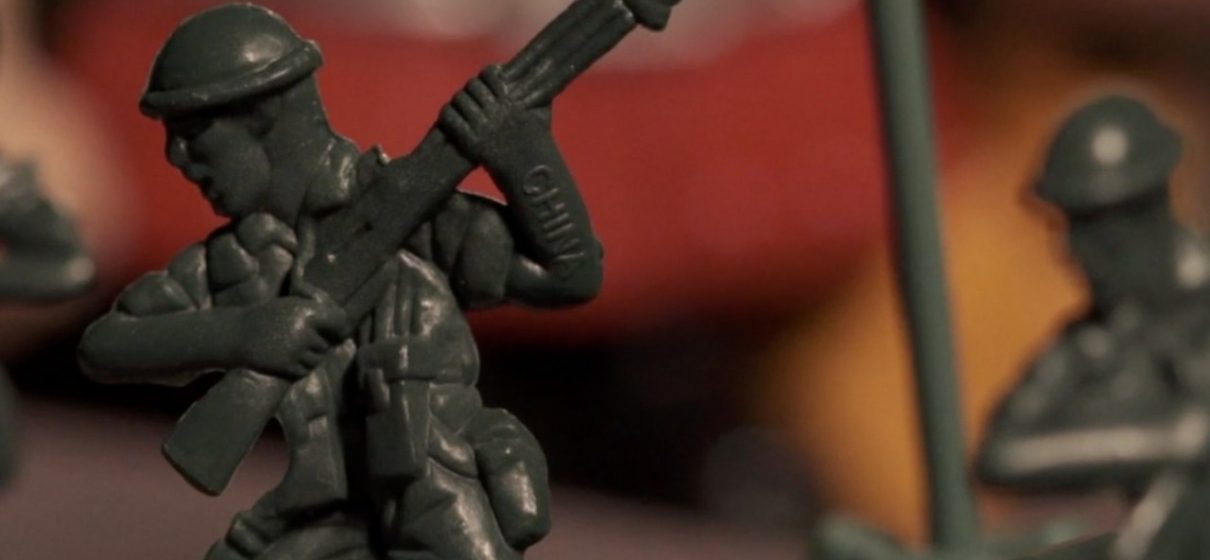
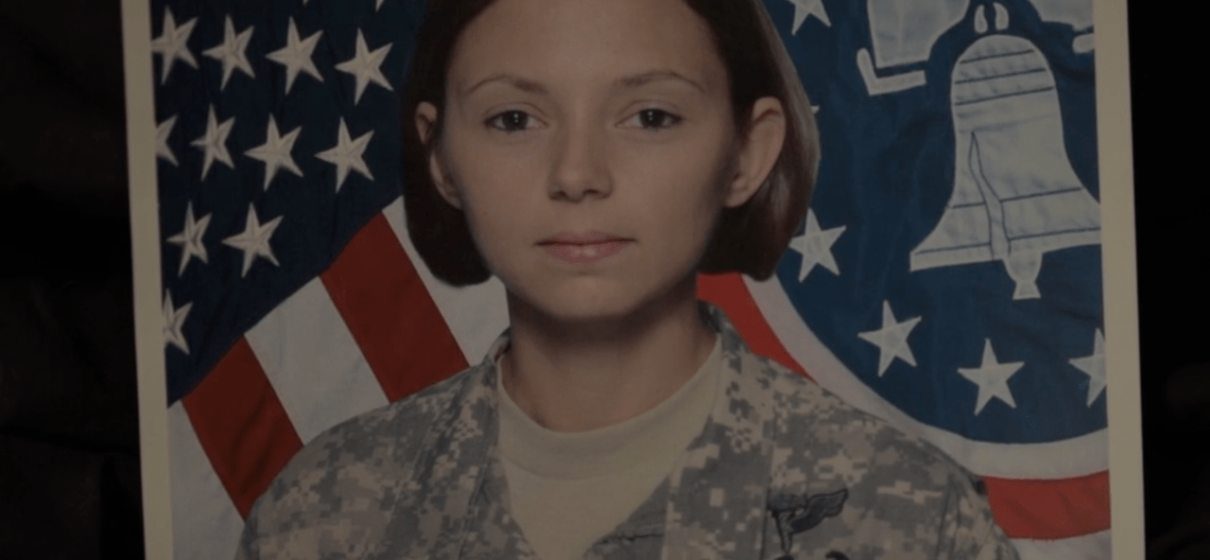



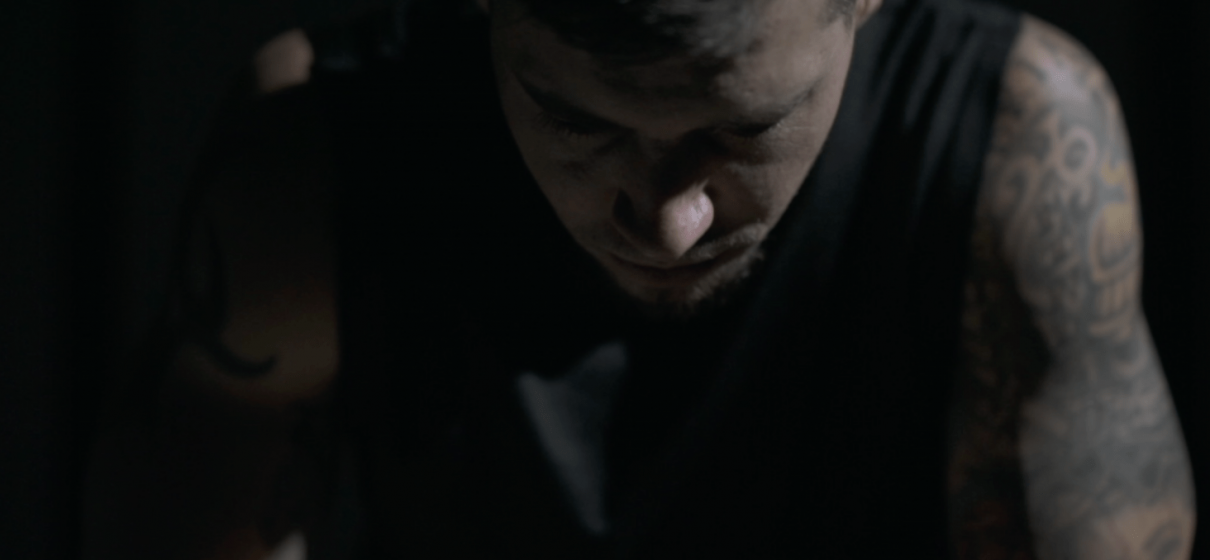











 Chanda, John (Father), Marissa (Sister).
Chanda, John (Father), Marissa (Sister). Chanda and Krissy.
Chanda and Krissy. Chanda and Caleb.
Chanda and Caleb. John (Father), Sherry (Mother), Chanda, Caleb.
John (Father), Sherry (Mother), Chanda, Caleb.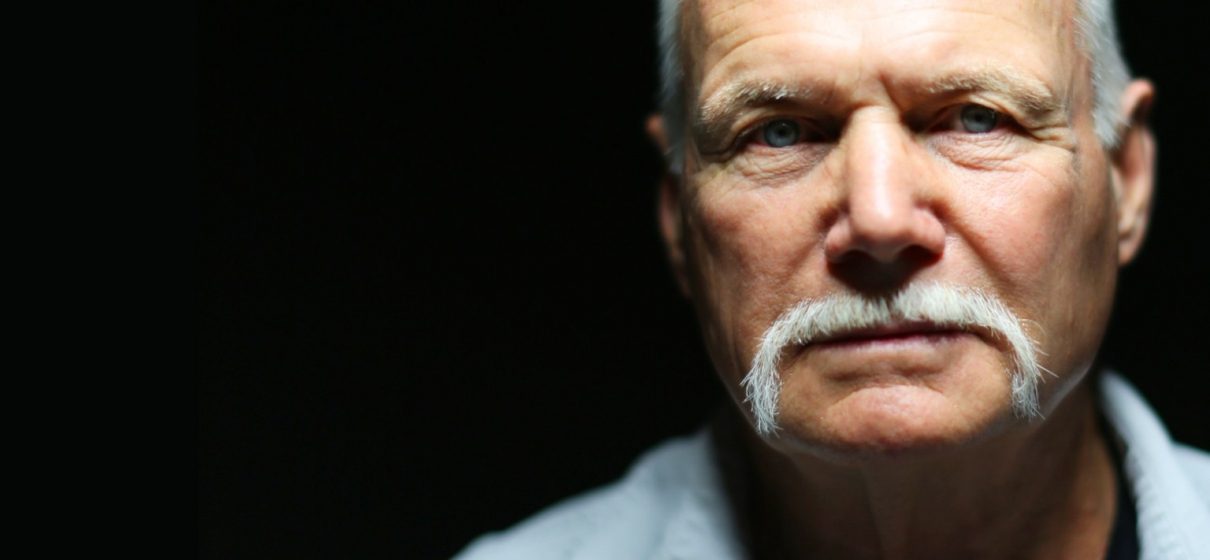




 (From left to right) Paula, Toni, Dave
(From left to right) Paula, Toni, Dave Dave and Paula
Dave and Paula The Fraziers and their small group.
The Fraziers and their small group.







